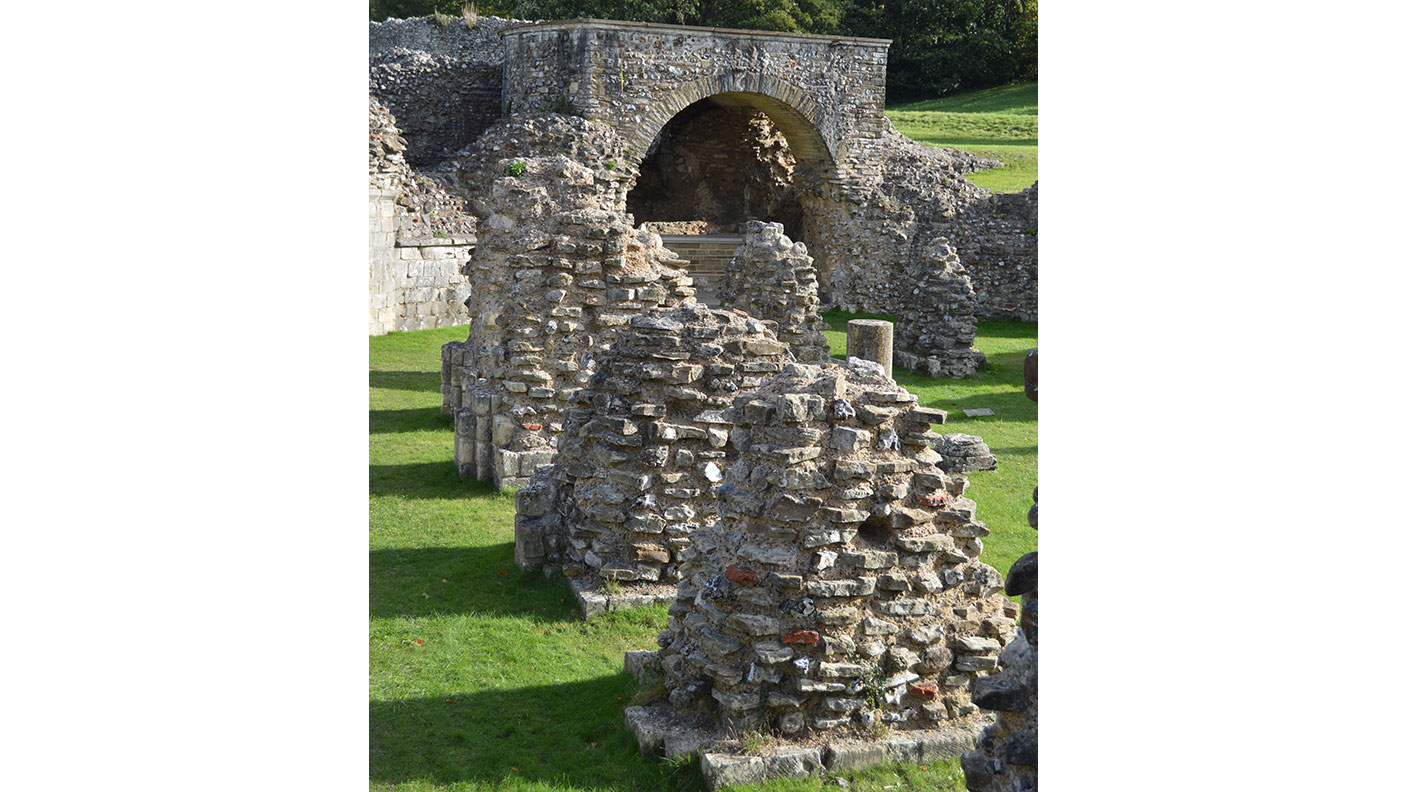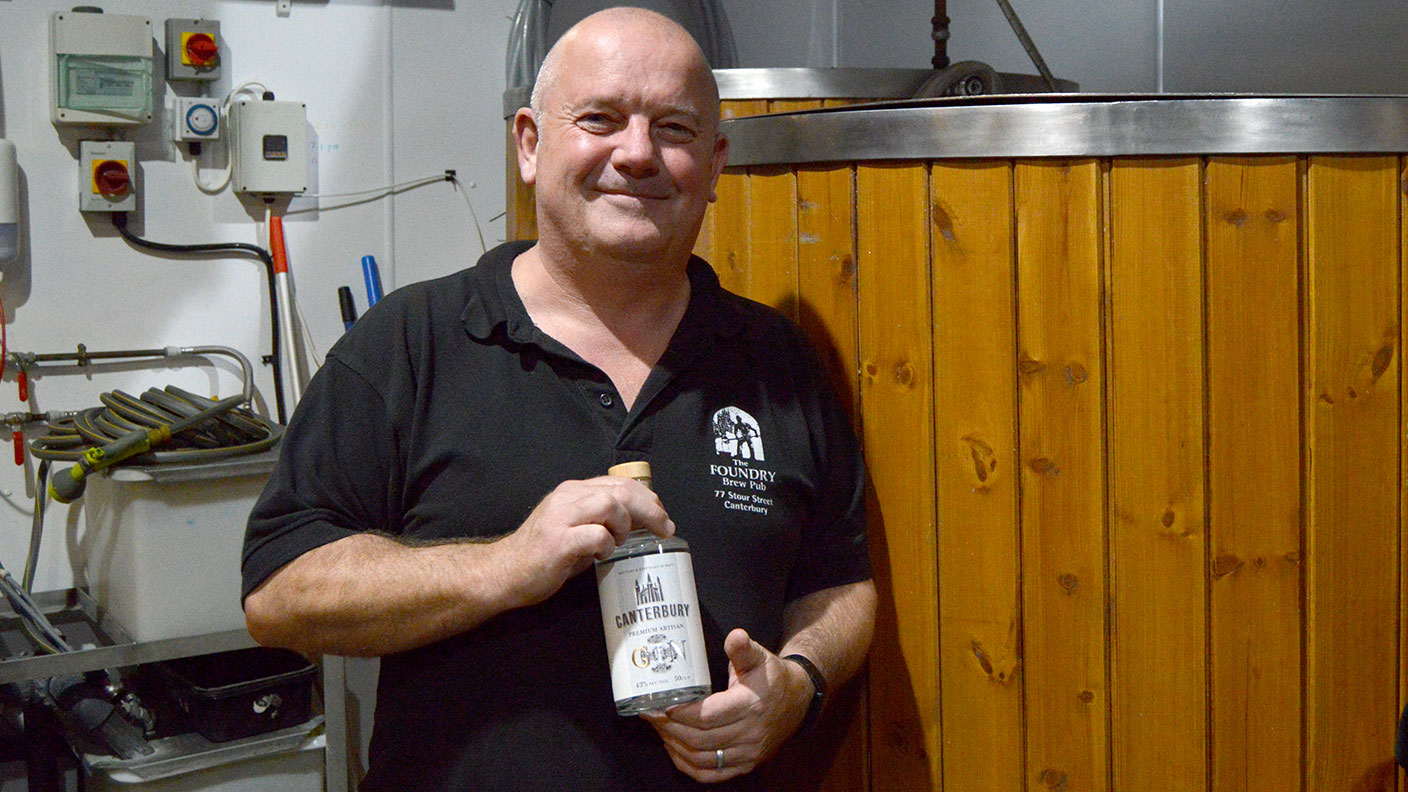Travel: a modern-day pilgrimage to Canterbury
Those who follow in the footsteps of Chaucer’s travellers will find plenty to amuse themselves in Canterbury, says Matthew Partridge

Get the latest financial news, insights and expert analysis from our award-winning MoneyWeek team, to help you understand what really matters when it comes to your finances.
You are now subscribed
Your newsletter sign-up was successful
Want to add more newsletters?
Geoffrey Chaucer’s The Canterbury Tales, which tells the story of a group of pilgrims making their way from London to Canterbury, was written more than 600 years ago. Pilgrimage is not as popular as it once was, but modern-day pilgrims to Canterbury will still find plenty to uplift them in one of Kent’s most charming cities.
Your first stop should be Canterbury Cathedral. Founded in 597, when St Augustine made his journey to bring Christianity to England, then rebuilt between 1070 and 1077, it became a major site for religious pilgrimage when St Thomas Becket was murdered there in 1170. Becket’s shrine and relics were destroyed when Henry VIII broke with Rome, but an altar has been installed in the spot where he died. As well as its spiritual and historical significance, there is plenty to admire in the soaring Gothic architecture – pre-booking is required.

Other notable buildings in the city include the ruins of St Augustine’s Abbey, which was dissolved in 1538, as well as the nearby Church of St Martin’s, the oldest parish church in England, built two decades before St Augustine’s arrival. Although Anglican, St Dunstan’s holds the reburied remains of the Catholic martyr St Thomas More. Canterbury’s Catholic church, St Thomas of Canterbury, is also a striking example of 19th-century Gothic Revival and contains relics from St Thomas Becket.
Try 6 free issues of MoneyWeek today
Get unparalleled financial insight, analysis and expert opinion you can profit from.

Sign up to Money Morning
Don't miss the latest investment and personal finances news, market analysis, plus money-saving tips with our free twice-daily newsletter
Don't miss the latest investment and personal finances news, market analysis, plus money-saving tips with our free twice-daily newsletter
Watering holes
Even the most devout pilgrims would stop for refreshment and entertainment, and Canterbury still provides plenty of both. There is a large number of rustic pubs (the City Fish Bar has won fully justified awards for its fish and chips). The Marlowe Theatre, named after the Elizabethan poet, playwright and suspected spy, also hosts everything from musicals to stand-up comedy.

But if you want to experience something a bit different, then head to the microbrewery at The Foundry. It’s worth visiting for the incredible range of beers alone, but you should also book the 90-minute tour run by distiller and co-owner Jon Mills.
As well as letting you sample a wide range of drinks, Jon takes you through the process of how his pub produces everything from lager brewed from New Zealand hops through to its own moonshine. The best is perhaps the Japanese Jin (gin) made from the fruit grown on Okinawa Island – said to be the secret ingredient behind the islanders’ incredibly long life expectancy.
Where to stay
You can’t get a more central location than with the luxury hotel ABode Canterbury, situated on the High Street a short ten-minute walk from Canterbury East train station and just a few steps from the cathedral and the theatre. So it’s ideal for those of us who like to cram as much into their visit as possible and you can spend the maximum amount of time experiencing the city rather than having to worry about taxis or finding your way around the area.
The location isn’t the only thing that’s convenient. Whether you like to travel light or have a tendency to bring everything but the kitchen sink, you’ll appreciate the spacious rooms, with large beds and well-appointed bathrooms. Indeed, the best rooms come with a range of elegant touches, such as solid-oak floors and lounge areas. As well as the sense of heritage, which is reflected in the décor and the photographs of the city that hang on the walls, the hotel also comes with the facilities that the modern business traveller expects, including an on-site gym.
As good as the rooms are, ABode Canterbury’s restaurant is really special. Perhaps the highlight of my stay was the three-course dinner, washed down with a silky red wine, with cooking of a quality that matched the elegant presentation of the food, and a menu offering vegetable, fish and meat options for both the starter and the main course. There is also a large number of morning dishes, from porridge for the abstemious, to an excellent full English breakfast (which I selected). As well as the main restaurant, the hotel also has a champagne bar.
The combination of great food and attentive service from the staff means that the hotel is a favourite for meetings, conferences and weddings, with various special packages on offer. It also “delivers strong value for money”, as The Daily Telegraph points out, “particularly in a city surprisingly lacking in good hotels”.
Rooms from £90 a night, abodecanterbury.co.uk
Get the latest financial news, insights and expert analysis from our award-winning MoneyWeek team, to help you understand what really matters when it comes to your finances.

-
 Do you face ‘double whammy’ inheritance tax blow? How to lessen the impact
Do you face ‘double whammy’ inheritance tax blow? How to lessen the impactFrozen tax thresholds and pensions falling within the scope of inheritance tax will drag thousands more estates into losing their residence nil-rate band, analysis suggests
-
 Has the market misjudged Relx?
Has the market misjudged Relx?Relx shares fell on fears that AI was about to eat its lunch, but the firm remains well placed to thrive
-
 Review: Pierre & Vacances – affordable luxury in iconic Flaine
Review: Pierre & Vacances – affordable luxury in iconic FlaineSnow-sure and steeped in rich architectural heritage, Flaine is a unique ski resort which offers something for all of the family.
-
 8 of the best properties for sale with minstrels’ galleries
8 of the best properties for sale with minstrels’ galleriesThe best properties for sale with minstrels’ galleries – from a 15th-century house in Kent, to a four-storey house in Hampstead, comprising part of a converted, Grade II-listed former library
-
 The rare books which are selling for thousands
The rare books which are selling for thousandsRare books have been given a boost by the film Wuthering Heights. So how much are they really selling for?
-
 8 of the best properties for sale with beautiful kitchens
8 of the best properties for sale with beautiful kitchensThe best properties for sale with beautiful kitchens – from a Modernist house moments from the River Thames in Chiswick, to a 19th-century Italian house in Florence
-
 Review: Eliamos Villas Hotel & Spa – revel in the quiet madness of Kefalonia
Review: Eliamos Villas Hotel & Spa – revel in the quiet madness of KefaloniaTravel Eliamos Villas Hotel & Spa on the Greek island of Kefalonia is a restful sanctuary for the mind, body and soul
-
 Adventures in Saudi Arabia
Adventures in Saudi ArabiaTravel The kingdom of Saudi Arabia in the Middle East is rich in undiscovered natural beauty. Get there before everybody else does, says Merryn Somerset Webb
-
 Review: Constance Moofushi and Halaveli – respite in the Maldives
Review: Constance Moofushi and Halaveli – respite in the MaldivesTravel The Constance resorts of Moofushi and Halaveli on two idyllic islands in the Maldives offer two wonderful ways to unwind
-
 Affordable Art Fair: The art fair for beginners
Affordable Art Fair: The art fair for beginnersChris Carter talks to the Affordable Art Fair’s Hugo Barclay about how to start collecting art, the dos and don’ts, and more